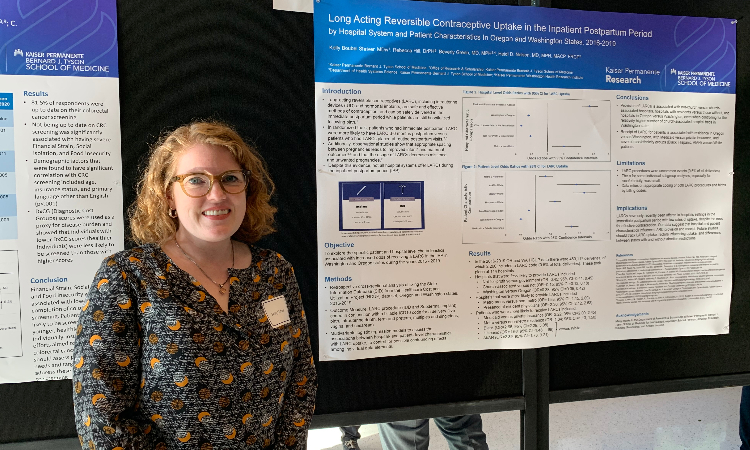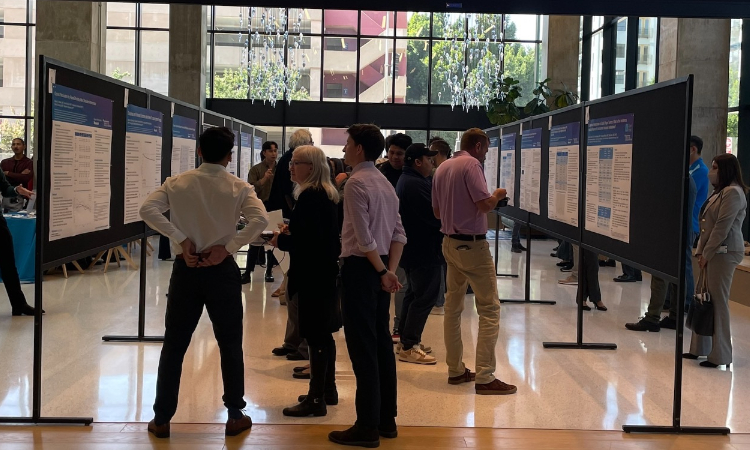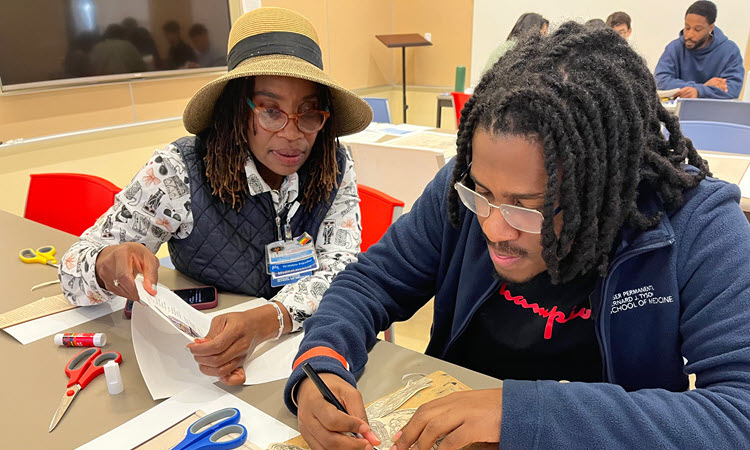The Kaiser Permanente Bernard J. Tyson School of Medicine (KPSOM) recently held its inaugural Student Scholarship Symposium to celebrate the scholarly achievements of its class of 2024 students. The symposium featured an impressive array of research projects covering diverse health conditions, medical education, and health equity, and provided a platform for students to share their work with the school's community. The event marked the culmination of three years of dedicated research by the students.
“The first KPSOM Student Scholarship Symposium was a resounding success,” said Jonathan Finkelstein, MD, MPH, Senior Associate Dean for Research and Scholarship. “It emphasized our school's commitment to fostering excellence in medical research and education, as well as providing a glimpse into the promising future of healthcare delivery, driven by the passion and dedication of these aspiring physicians.”
Founding Dean and CEO Mark Schuster, MD, PhD, and Finkelstein delivered introductory remarks, setting the stage for a day of intellectual exchange and discovery. The event was carefully scheduled to allow students from other classes to interact with the presenting students, fostering dialogue and a deeper understanding of the research.
One of the unique aspects of the symposium was the opportunity for faculty, staff, and invited guests from outside the school to engage with the students and their research. The day included two in-person poster presentation sessions as well as a virtual poster session enabling colleagues from Kaiser Permanente research units in different regions to participate and share their insights.
“I spent time during the event looking at all the work and taking in the ‘buzz’ of this brilliant event,” said Chileshe Nkonde Price, MD, MS, Assistant Professor of Clinical Science and Research Mentor for the Student Scholarly Project.




